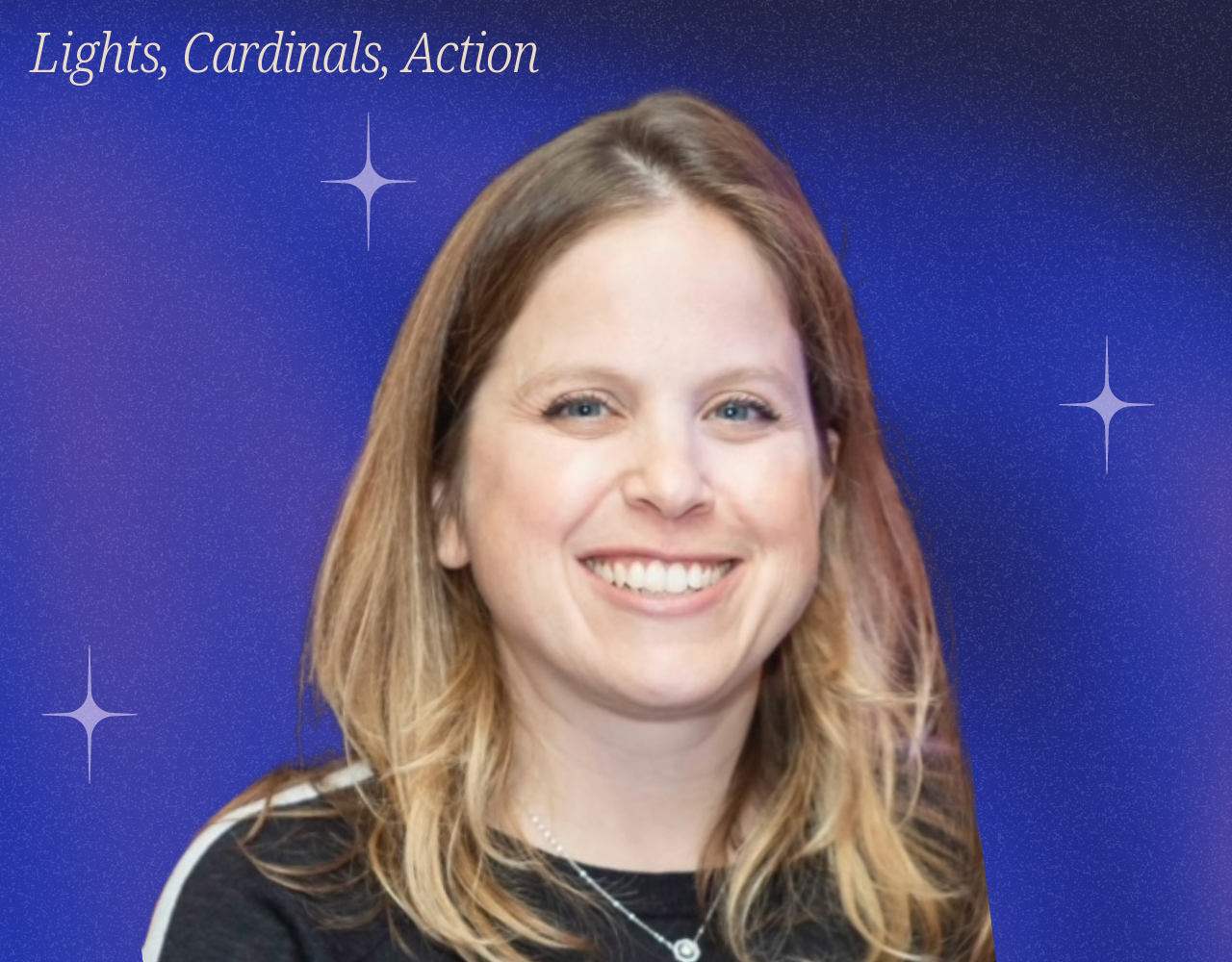“13 Going on 30”(2004) is going on 20 years this April. Cathy Yuspa ’92 co-wrote the screenplay for the iconic rom-com with her husband and writing partner Josh Goldsmith. The duo met in film school at the University of Southern California, rising from writers to show-runners for the CBS sitcom “King of Queens” before penning “13 Going on 30.”
The film — about a 13-year-old girl who wakes up in her 30-year-old self’s body — has since become a staple in the rom-com film canon. Now, Yuspa and Goldsmith are adapting it into a stage musical to be premiered in 2025. The Daily spoke with Yuspa about writing the beloved comedy and adapting it to a musical.
This transcript has been lightly edited for clarity and concision.
The Stanford Daily (TSD): How did you discover that you and your now husband were a good duo, and how do you write together?
Cathy Yuspa (CY): We shared a lot of overlap in taste, and there was so much overlap that we said, “Let’s try to write something together.” So we did. Film and TV are so collaborative; it works to bounce things off with someone else.
In terms of how we work, it depends. If we are just writing a screenplay, and we’re just both sitting there with no production deadline, it’s much more like sitting together side-by-side, hashing out every detail and sometimes even writing scenes together.
If we are in production on a TV show, we will divide things up even more. In those cases, we definitely do the brainstorming and outlining together. Depending on the structure that we’re working in, like if it’s a two-act structure, he’ll take the first act, and I’ll take the second act. Then we unify it together and rewrite each other’s parts. It really depends on how close we are to something needing to be turned in.
TSD: What inspired you both to write “13 Going on 30”?
CY: My husband and I both happened to have thirteen-year-old cousins at the time, who we thought were kind of hilarious. One of them had a goal to have a different lip gloss for every day of the year.
Also, reaching back to my own adolescence, I had gone through a social upheaval in seventh grade, where I was dumped by all my friends. It led me to find all new friends, and those are still my friends to this day. It was a seminal moment in my young life at that point.
Then we thought, a female movie star has never, to our knowledge, gotten to play a young person inside, and that would be a funny idea for a comedy. That’s how it evolved into the idea of a Jennifer Garner-aged person playing a young person.
TSD: My favorite part of the film is when Matty and Jenna eat Razzles and go on the swings. How did you come up with that scene?
CY: The movie is like an eighties throwback movie, so the Razzles were just a candy for us growing up. And then when you’re thinking about the concept of playing with a kid versus an adult, that’s where the swings came in. You’re looking for visual representations of that emotional idea. I think it’s one of my favorite scenes, too, and I think it’s their very sweet performances that make that scene work.
TSD: You’re working on a musical adaptation of “13 Going on 30” now. Where are you at in the process?
CY: It’s sort of moving forward in London, so we did a workshop there last fall with a bunch of actors from the West End, and they were fantastic. The movie is fairly musical in terms of the songs that the director put in. The movie has a Billy Joel song, and there are a few big musical places in the movie. But revisiting the movie and asking how this could become a stage musical, you’re looking for moments where it could sing. The swingset scene that you mentioned actually is a song in the musical. There’s a song called, “Why Can’t We Fly?” that’s about, ‘Could we turn this stalled relationship into something?’
TSD: For people aspiring to pursue a career similar to yours, what less-obvious advice would you give them?
CY: Enthusiasm goes a long way. If somebody has a television show going and they’re hiring people to come on, someone coming in and being enthusiastic saying, ‘I want to be here to help you get your thing done’ – that’s a really valuable thing, something that young people can bring. Just coming into an interview, even for a production assistant job or a writer’s assistant job, with enthusiasm is really helpful.
Then, generally speaking, have a curiosity about people and stories and little things you’ve learned. Some random thing you’ve learned in some class might come into play later on. You’re working on a story and go, ‘Oh, this person could have that career. I know just enough about it to write about it from that class that I had.’ Stanford students will bring with them a general curiosity about people and basic knowledge of the world that can be useful to fuel a long career in a creative field.
